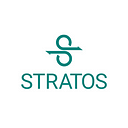The rise of decentralized infrastructure — What we learn from the Facebook Outage
October 4th, 2021, a major outage crashed down the whole family of Facebook kingdom. It is not a massive attack, it is not a natural disaster, it is just a single record that disappeared from the DNS table. And according to the Facebook engineering team, it is an internal faulty configuration change. Facebook, Instagram, WhatsApp, etc., disappeared from the internet for more than 6 hours just because of a few lines of code change.
The disaster is not only as it shows to the public. People on the internet complain that they cannot reach their friends, business partners. Moreover, inside Facebook,is worse for the employees of Facebook. They found out that they cannot even go inside or go outside the building because the access control system is down. They also noticed that their laptop cannot access any internal applications. They cannot even go inside the server cage and the final solution is an angle grinder.
This is a good example presenting to everyone how fragile a centralized system can be and it also tells how easy it is possible to destroy a tech giant from inside with only minimum effort. Let’s see what Facebook’s engineering team tells us: “Our engineering teams have learned that configuration changes on the backbone routers that coordinate network traffic between our data centers caused issues that interrupted this communication. This disruption to network traffic had a cascading effect on the way our data centers communicate, bringing our services to a halt.”
Nowadays IT experts have figured out a lot of ways to avoid a single point of failure in a centralized system. But the list is never ending. It is the nature of the centralized system, when we look at the network with a coarse granularity, a centralized system itself is a SPOF (Single Point of Failure) — — Just recall how many people were panicking on that day when they realized that they cannot connect to someone they love.
A decentralized infrastructure will ensure that what happened to Facebook won’t happen in the new decentralized world. One of the core ideas and achievements of such infrastructure is there will be no SPOF.
People are talking about decentralized applications for a long time. Like we need a decentralized Facebook, we need a decentralized Twitter. But very rarely they will mention decentralized infrastructure. Since the first day we built the Stratos Network, we have a very clear view that decentralized applications are important, but more importantly we need to provide a fully decentralized infrastructure to build the application and ensure they are naturally decentralized. Our unique data mesh infrastructure ensures that “System down” will be a historical word. The application itself, the data behind the application, the computation power behind the application, even the connection bandwidth required by the applications are always available, no single party can bring down any of these essential services. That also means the application is always LIVE.
There’s another very important aspect of this disaster which was not even mentioned by the Facebook engineering team, is the consensus. The root failure is a wrong configuration of the BGP (Border Gateway Protocol) routing that has been broadcast to the network. BGP is a flexible way for autonomous systems (AS) to exchange their routing information, but the issue here is there is no consensus process available to ensure the credibility of a message that is broadcast to the network. AS will trust each other blindly. That’s why a wrong configuration can be broadcasted to the whole world. I am not going into the details of how DNS works, but everyone can see the results: Facebook and its family applications disappeared from the network. Think if we have a consensus process between the AS, no one can just broadcast a wrong message and be accepted by all the others.
The Stratos team is taking the consensus issue seriously and applied it to the core of the Stratos data mesh infrastructure. The three consensus algorithms applied in the whole system ensure that the infrastructure is trustful and unbreakable.
Combining the decentralized nature and consensus principle, Stratos is building a solid base for the decentralized new world.
Facebook makes a case for decentralized social platforms powered by fully decentralized infrastructure.
About Stratos
Stratos is the next generation of decentralized Data Mesh that provides a scalable, reliable, self-balanced storage, database, and computation network. Stratos is born for scaling blockchain process capacity while retaining the decentralized benefits of a distributed protocol including trustlessness, traceability, verifiability, privacy, and other competitive strengths.
Stratos is best positioned to support data storage and adoption for developers and users in this ever-expanding digital economy. Stratos strives to make decentralized data adoption easier for the blockchain industry and Web 3.0.
Stay tuned for more info and follow us at:
Twitter | Telegram Group |Telegram Announcement Channel| Medium | Discord | LinkedIn | WeChat: Stratos
